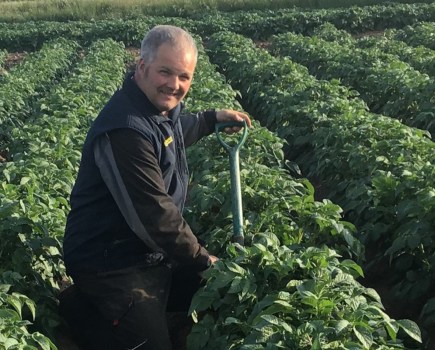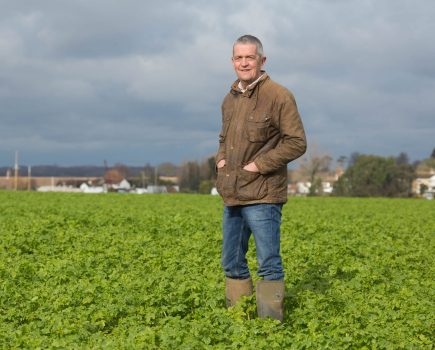One of the many worrying aspects of the current Parliamentary melt-down being caused by Brexit is that there is a queue of major bills not getting the parliamentary attention they merit.
Amongst others, there’s the Environment Bill, the Immigration Bill, the Trade Bill and then finally, but by no means least, the Agricultural Bill. All these pieces of legislation will have considerable impact on British farmers but the Agriculture Bill stands out as having the potential to colour the fortunes of our industry for a generation.
It’s quite a thought that it’s the twenty to thirty-year olds, (I’m reliably informed these people are called ‘millennials’) that should be giving this most attention as it’s their generation that have most to win or lose.
For the current middle-aged generation of farmers, and let’s be honest these are the people who usually have most control of the farm cheque book (or whatever the digital equivalent of cheque books are nowadays) we are probably at the tail end of this policy maelstrom. But then again, there’s sometimes a sting in the tail.
For those of us who’ve farmed since the 1980s we’ve seen a few CAP policy changes come and go but they’ve been incremental changes usually brought in with not much input from the British government. Now Whitehall is in the driving seat but you worry that with all the distraction of leaving the EU, they haven’t got their eyes on the road let alone a good map to steer them in the direction we need to take.
Originally the idea was that the Agriculture Bill would be passed into law before we left the EU at the end of March. But as we know, at the moment the House of Commons is so dysfunctional it would be incapable of phoning out for take-away pizza. So the Agriculture Bill timetable has now been thrown up into the air.
Meanwhile the narrative around the Bill remains – we will see BPS eroded from 2021/22 onwards so it ends in 2028. By then we will have a new suite of agri-environment schemes to tap into to plug some of the gap the loss of BPS will leave. But there are a lot of known unknowns in there including size of budget as well as design and delivery of schemes. If they are based on the principle of income foregone then they will struggle to compensate many arable farmers for loss of BPS.
However, if they generously pay for tweaks to productive farming such as cover crops and establishment techniques then they will become more interesting. But even if they were production friendly by design, they will need to be delivered smoothly and competently with farmers knowing exactly what they need to do and how much and when they will be paid.
One mustn’t be too cynical but Defra’s record on delivering new schemes is not a happy one, especially in the initial years. Just as with SPS in 2013, it would be a bitter irony that after taking years to get BPS properly delivered, at the very moment when competence is achieved the apple-cart gets overturned as new schemes are ushered in without what is needed, such as fit-for-purpose IT.
The question I suppose for many of us is: should we be in some way preparing for this radical policy change? Given the current lack of clarity, for most of us the answer is ‘probably not’ unless, of course, we were thinking of buying or taking on land.
I suspect I’m not the only one who isn’t scanning the ‘Farms for sale’ section of the farming press quite so avidly as I used to. But then again, I’m reminded my grandfather bought land in the 1930s when farming’s fortunes were not in a good place and turmoil was just around the corner. And what was the princely sum he borrowed from the bank to fund what was then seen as a reckless purchase at crazy prices. It was £4000 to buy 300 acres. In his case fortune favoured the brave. I sometimes worry that there is one key genetic trait that didn’t get handed down the Smith family tree – big balls.
Guy Smith grows 500ha of combinable crops on the north east Essex coast. @EssexPeasant





